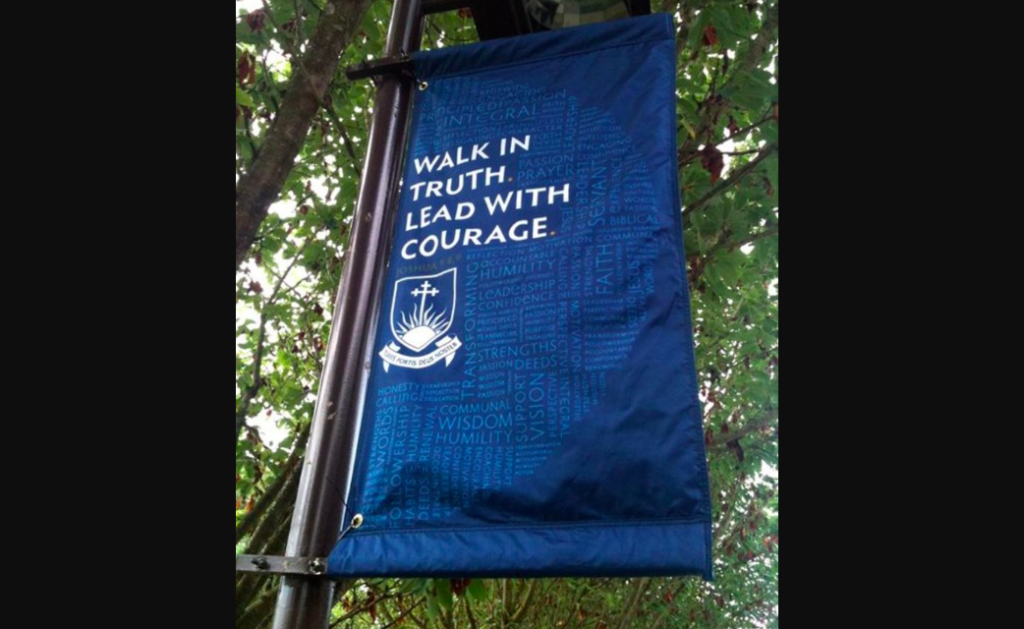Last week, the Supreme Court of Canada ruled that Christian law schools could be denied their accreditation for voicing their opposition to homosexuality.
The highest court in Canada ruled Friday morning on two separate issues that would restrict Christian schools and their beliefs. The 7-2 decision was in favor of law societies of British Columbia and Ontario and against Trinity Western University.
President Trump to Sign Executive Order That Will Protect Religious Liberty
The court ruled that the law would apply to Ontario’s Law Society of Upper Canada and “significantly advanced the statutory objectives by ensuring equal access to and diversity in the legal profession and preventing the risk of significant harm to LGBT people.”
“The LSUC’s decision means that TWU’s community members cannot impose those religious beliefs on fellow law students, since they have an inequitable impact and can cause significant harm,” the majority opinion stated. “The LSUC chose an interpretation of the public interest which mandates access to law schools based on merit and diversity, rather than exclusionary religious practices.”
The dissenting justices argued that the denial of accreditation was “a profound interference with the TWU community’s freedom of religion.”
“It interferes with that community’s expression of religious belief through the practice of creating and adhering to a biblically grounded covenant,” reads the dissenting statement.
“In a liberal and pluralist society, the public interest is served, and not undermined, by the accommodation of difference.”
Trinity Western University was founded in British Columbia in 1962 as an evangelical Christian college with a focus in liberal arts.
Like many other Christian colleges and universities, the school has a “community covenant,” or code of conduct that its students and faculty must adhere to. The covenant states that all who sign it must “voluntarily abstain” from “sexual intimacy that violates the sacredness of marriage between a man and a woman.”
“The university’s mission, core values, curriculum and community life are formed by a firm commitment to the person and work of Jesus Christ as declared in the Bible,” the covenant notes. “The community covenant is a solemn pledge in which members place themselves under obligations on the part of the institution to its members, the members to the institution, and the members to one another.”
The covenant also calls for its members to abstain from “gossip, slander, vulgar/obscene language,” … “stealing, misusing or destroying property belonging to others,” … “drunkenness, underage consumption of alcohol, and the use or possession of illegal drugs.”
Up until recently, TWU has not had a huge problem with maintaining their status as a certified university, as most of Canada’s provincial law societies have granted them accreditation. Yet Ontario, Nova Scotia and British Columbia have voiced their opposition to the school’s accreditation over the years due to their belief in the sanctity of biblical marriage.
Before Friday’s Supreme Court ruling, there were mixed results for legal actions against TWU.
In January 2015, the Nova Scotia Supreme Court ruled in favor of the university, protecting their religious beliefs.
In June 2016, the Ontario Court of Appeals ruled against them, stating that their accreditation could be revoked for their stance on homosexuality.
After the Canadian Supreme Court ruling on Friday, TWU issued a statement in which they expressed their disappointment in the courts.
“Until now, Canada has encouraged the rich mosaic created by the diversity of views, race, gender, and belief systems,” the university said in a video posted on TWU’s official Facebook page. “Sadly, the Supreme Court has decided that this does not extend to a law school at Trinity Western University.”
(H/T: The Christian Post)



